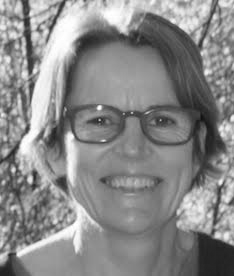What can we do to support life on our planet?
By Jena Griffiths | March 14, 2021
Recently I listened to this fascinating discussion between Dr Sylvia Earle of Mission Blue and the makers of the Octopus Teacher documentary, Craig Foster and Pippa Erlich, co-creators of Sea Change Project, mediated by Will Travis of the Elevation Barn
A Discussion with Dr. Sylvia Earle and Craig Foster from My Octopus Teacher

And now a new book to help us walk this talk
I loved this conversation between Sounds True’s Tami Simon and Dr. Erin Yu-Juin McMorrow about her new book: Grounded
listen to this conversation here
“Healing the Soil, Healing Ourselves”
In the conversation McMorrow mentions all the micro organisms and fungi in soil that play a vital role in keeping us and our planet healthy and how we can play our part..
More about the book Grounded: A Fierce, Feminine Guide to Connecting with the Soil and Healing from the Ground Up.
Also check out this important conversation about life as collaboration and community and the importance of biological diversity for personal, social, and ecological health. This conversation took place between Charles Eisenstein and Dr Zach Bush, and MD who focuses on the relationship between, brain/gut health, the microbiome and soil science. They discuss the inventive fecundity of life, the role of viruses in sharing genetic information, and more. Charles Eisenstein’s podcast or on soundcloud Transcript
How can cows be part of the solution?

I really believe that cows and other animals can play an important role in removing carbon from the atmosphere. Here’s my Earth School interview with Thomas Rippel in 2015 on how cows can be part of the solution to climate change, to help store carbon in the soil rather than in the air, through bringing back ancient methods of composting, made possible through small scale animal husbandy to enrich and increase the microorganisms that make up a healthy soil.
More recently Kultureland eG an organization that people can donate land to, or fund, for land to be put in the hands of people focused on soil regeneration.
A great idea re collective buying power, where each human can buy the land needed to support one or more people (currently about 2000 square metres per person/ approx €6000 in Europe.) This organisation enables one to buy shares for collective purchase of the land so that the soil can be protected by people who put their hearts into this matter.
Other people doing excellent work in this regard are Rob Herring & Ryan Wirick, the makers of the film the Need to Grow regarding some brilliant ideas from Michael Smith to accelerate the regeneration of soil using Algae AquaCulture Technologies (AACT) and the development of the Green Power House (GPH)
More about what happened after events documented in the film. Updates on a rebuild in Norway.
How you can get involved by growing your own food while enriching the soil.
How algae can help reduce carbon in the atmosphere – Algae world news
High quality, low carbon protein from microalgae
« Helping through entanglement | Home | Why we need to say no to ocean mining »
Topics: climate change, ecology and nature, Environment | 1 Comment »



April 18th, 2022 at 11:34 am
Thanks so much for the information